Breakthrough Man
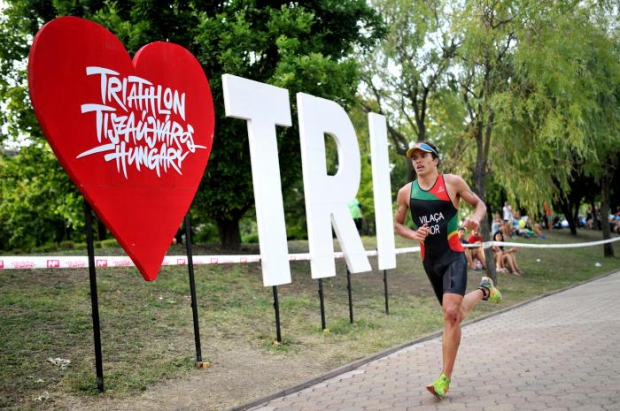
On September 5, in the first big elite race after six months lost to the Covid-19 pandemic, a little known 20-year-old Portuguese man stunned the triathlon world with a silver medal performance in the World Championship in Hamburg. While he was 2 seconds behind two-time World Champion Vincent Luis of France at the sprint distance, Vasco Vilaca left stars like Alistair Brownlee (9th), Jelle Geens (4th), Richard Murray (7th), Gustav Iden (11th), Kristian Blummenfelt (13th) and Jonathan Brownlee (31st) in his wake.
One week later, the 5-foot 7 inch, 143-pound Vilaca proved he was no fluke with another second-place finish to Luis at the Olympic distance Karlovy Vary World Cup. While a surprise at the top level, students of the sport knew that Vilaca was coming – a junior men gold medalist at the 2017 European Championship, a junior men silver medalist at the 2017 ITU Grand Final and a 15th in his WTS debut last year in Edmonton.
Born in Lisbon-adjacent Amadora, Vilaca did gymnastics at age 3, did his first duathlon at age 6, and followed his sister Vera into international triathlon competition at age 13, when his family moved to Sweden.
Slowtwitch: When did you move to Sweden?
Vasco Vilaca: I moved with my family to Sweden in 2013. It was professional choice made by my father Pedro Vilaca, a professor of mechanical engineering at the University.
ST: When did you start working with coaches?
Vasco: When I was 13, had a Portuguese coach sending me training plans to Sweden. At 15, I moved away from home to Motala and worked with Willem Viland, who coaches at the Linkoping high school. At first, I was not that serious in training. But when I joined Viland and his group, my whole situation – being in school, being in training – worked so well. I was training very consistently the whole year, and that gave me a huge boost.
ST: What was your level of running and swimming at 15?
Vasco: I ran about 16 minutes for the 5k in a triathlon. At the time running was my best discipline and swimming was the worst – about 5 minutes for 400 meters. Now, I am 40 seconds faster.
ST: What was your first breakthrough?
Vasco: My first big surprise was when I won Quarteira ETU Triathlon Junior European Cup in 2016. The year before I was almost last [61st] in that same race. The next breakthrough came when I won the 2017 junior men at the ETU Triathlon European Championship.
ST: Were you inspired by any triathletes?
Vasco: At first I didn’t follow other people. I chose my path and I tried to stay with it until I understood what I had to adjust. At the same time, my first idol was Vanessa Fernandes.
ST: When did you meet?
Vasco: In high school I joined the SL Benfica football and sporting club, which Vanessa was a part of. And a few years later I got to meet her. It was beautiful just being with her and getting advice as she shared her experiences. Those were great moments.
ST: What did she say that made the biggest impression?
Vasco:I recall most vividly when she told me she could be very nervous before races. “But when I go out on the start line, I know what I want to do there.” So I learned when I get to a race – you must know 100 percent what you want to do.
ST: Have you met top Portuguese men?
Vasco: When I got on the Portuguese Olympic Project, which brings all our best triathletes together, I met Joao Pereira and Joao Silva who are some of the top Portuguese Olympic triathletes. They shared some of their experiences, and pushed me to do better and help the sport keep growing.
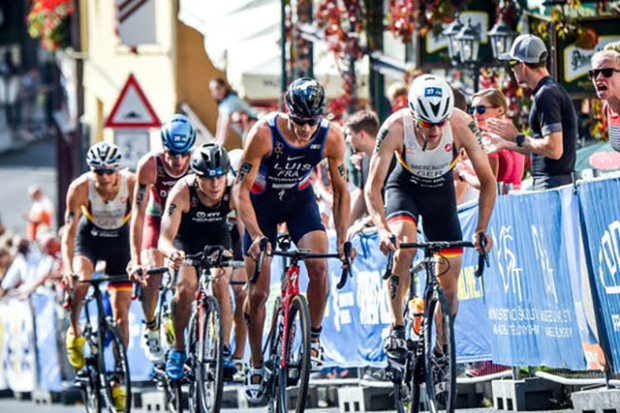
ST: Do you work with any Portuguese coaches?
Vasco: No. As I live and train in Sweden I am not part of the Portuguese training system. Willem Viland is my only coach.
ST: What is it like training with him?
Vasco: I really like the way we work here. It is about doing our job. No matter the result, there no big celebrations. Just have a great race, then we go back home and analyze what was good and what was bad. And then we decide how to get better and learn from our mistakes. After I was second at Hamburg and Karlovy Vary, we had a small moment to celebrate and then it’s back to work.
ST: How did you train during the pandemic?
Vasco: I was in Portugal at the beginning of the lockdown and I was training just by myself. I had no swimming pool so I was just biking and running and I had time to improve those. But it was hard for me and my coach to communicate.
ST: By email?
Vasco: By telephone. We would go over the whole week – what was going right, what was going wrong. And depending on how my sessions were going, we would talk in the middle of the week.
ST: What was good working in isolation during the pandemic?
Vasco: It was a lot about adjusting the volume of the training. I had never been training so much and never had so many high-volume weeks. We adjusted depending how the biking was feeling, or how the running was feeling. And which of them we could put more work into at each moment. If you want to run more, you need to do less with the other. And the other way around.
ST: How did you avoid injury?
Vasco: We decided not to go overboard. Don’t do any extreme weeks. Keep it cool. Keep it nice. Let's not do our biggest week. Just keep it a little bit below the limit so the body can hold this increased level and absorb this training. That's what made such a difference in these two races.
ST:When did you go into final preparations for Hamburg?
Vasco:At the beginning I was not supposed to be racing in Hamburg. Joao Pereira had a better ranking than me. He always comes first if he wants to race.
ST: Why did he give his spot to you?
Vasco: He wanted to focus more on training on the 2021 Olympic Games. This race was not counting for Olympic points. Three weeks before Hamburg he just decided it was better for all of us if I compete for Portugal.
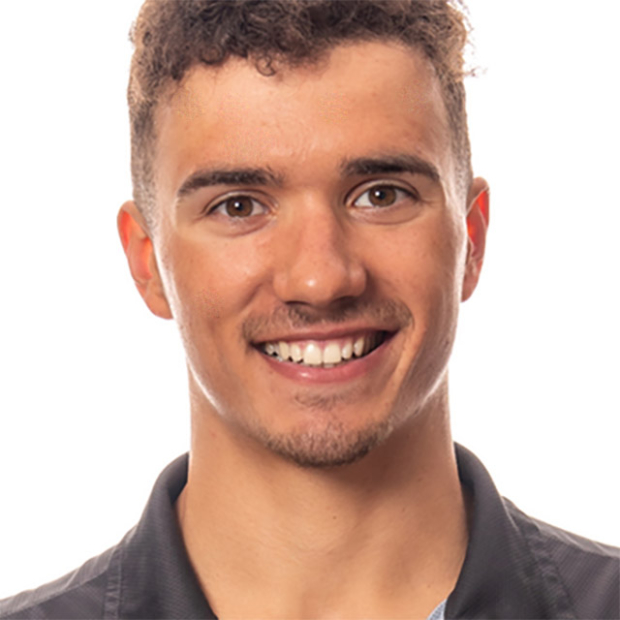
ST: You had raced World Cups so you had already raced against some of the best in the world?
Vasco: Yeah. I have raced against them at the Edmonton WTS last year. [Vilaca finished 15th, 64 seconds behind winner Jonathan Brownlee. Vilaca ran a 15:34 5k – 47 seconds back of top runner Mario Mola].
ST: What was it like preparing to race against the best?
Vasco: The truth is I was making the podium in junior races. Last year my physical capacity was not as high as today. So this year I was not putting any big pressure on myself. I considered these were races I had to run, experiences to learn how these races work. I thought: Just do my best swim. Do my best bike. Do my best run. And then see where I am compared to the other guys and see what I must do to work on my weaknesses.
ST:In 2019 what were your best run splits for the 5k and the 10k?
Vasco: I think the Banyoles World Cup was my best race last year. I ran a 14:42 5k. For the 10k, my best was at the 2019 World Championships Under 23 Grand Final in Lausanne where I finished 4th and ran 33:03.
ST: When you were at the Hamburg World Championship, how did it feel to run with Vincent Luis?
Vasco: That was a crazy feeling. It was mentally so good. That feeling that you are hanging on to one of the biggest stars of the sport gives you extra energy. You are at the front and you see Vincent right beside you and you think: OK. I am running as fast as Vincent.
ST: When did you realize you might win Hamburg?
Vasco: The first 1k of the run, I was in the front pack with very good runners. I had no idea where this would go. At that moment I thought: I have nothing to lose. I have never done this good. I’ll just do my best. So I ran with Vincent and Leo Bergere in the lead, up to 4k.
ST:What happened next?
Vasco: With 1k to go, Vincent and Leo accelerated to a faster pace and I couldn’t go with them. Leo held on to Vincent a few hundred meters longer than me and they made more time on me for most of the last k. But with 200 meters left, Leo had to let Vincent go as well. At that moment I was 20 meters behind Leo but I had enough strength to catch him at the finish.
[Luis finished with a 5th-best 14:38 5k, two seconds ahead of Vilaca, who ran 14:42. Bergere ran 14:46 and finished 4 seconds behind Vilaca for the final spot on the podium.]
ST: When you won a silver medal at the elite World Championship at age 20, how did you wrap your mind around that fact?
Vasco: If you looked at the photos after the race, you can see I didn't know how to react. It was something I had worked towards, but I never thought I would achieve it this early. After I finished, I was trying to understand: Is this real? Have I done something wrong? Have I run one lap too short? There was a very big smile on my face. But I was very confused.
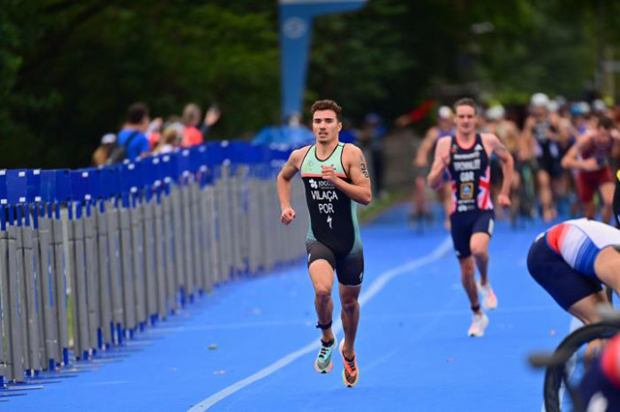
ST: One week later you raced at an Olympic distance race, a distance with which you had little experience. Were you confident?
Vasco: I had made a podium at the World Championship. But it was sprint distance where I had a lot of experience. But Karlovy Vary was only my third Olympic distance. When I arrived, I had no idea I would be able to duplicate what I had done the week before. Racing Olympic distance, I thought the guys had a big advantage with much more experience. They knew what pace to hold at a longer race. I was hoping for a Top 10.
ST: How did you calibrate your effort?
Vasco: My whole way of racing is: I have it be in the first pack, no matter what. I went into the race to do the best swim I can [12th place, 15 seconds back of the leader] and when I got out of the water, I will kill myself to reach the front group. That’s where you can race for the podium.
ST: How long did it take to reach the front pack on the bike?
Vasco: It took me 2k to catch up to the front group. I had to push hard on the big hill, but I passed a lot of people there and it was definitely worth it. I would say I had to push even harder than Hamburg.
ST: Once you got to the front pack, was it easy to hang with them?
Vasco: Yeah. There were six of us and one by one we took turns at the front to push the pace to open a gap to the main group.
ST: When you hit T2 how did your transition go?
Vasco: There was a crash just before transition and two men were lost. When we went into transition, we were three people – me, Vincent Luis, and a German {Jonas Breinlinger]. I was first in. but I had a cramp directly when I put on my left shoe and I was not sure I was going to make it through the run without being caught by the chase pack. Luis was looking very strong and to get through the first few ks. I knew I had to control myself and pick up the pace very, very gradually. I was just hanging on to Luis the first laps. Then I slowly let go and was able to open up my stride and start running full out.
ST:When did Vincent break away?
Vasco: I held on to him almost two laps. Then halfway through the run, I had to let him go because I wanted to make it to the finish without more cramping.
ST: Once Vincent took off, were you alone?
Vasco: At first, I was by myself in second place, about one minute ahead of Jelle Geens of Belgium, who was gradually catching me. But he never got that close. Fortunately his increased pace was not enough to catch me. Last lap I pushed a little harder and I finished six seconds behind Luis and 14 seconds ahead of Geens.
[Vilaca ran a personal best and 5th fastest 31:35 run split.]
ST: In some ways were you more proud of your race in the Olympic distance than your race at Hamburg?
Vasco: The World Championship was a big, big surprise. But to me the Olympic distance race at Karlovy Vary proved that my race at Hamburg was not just beginner’s luck. Physically it was a better performance even though Hamburg was a World Championship.
ST:What did you prove?
Vasco: I proved that to myself my race at Hamburg was not a dream and is really the level I must be competing at right now. Because these are the guys I must race now.
ST: What do you have to do to make the Olympic team? Right now you are ranked 106th in Olympic qualification points.
Vasco: To make sure I can go to the Olympics in 2021, I have to climb my way into the top 30 in Olympic rankings.

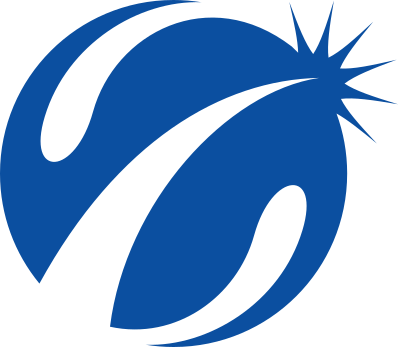

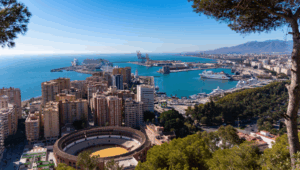
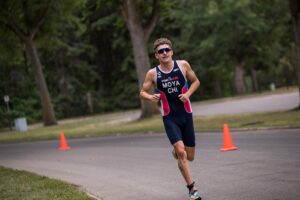


Start the discussion at forum.slowtwitch.com